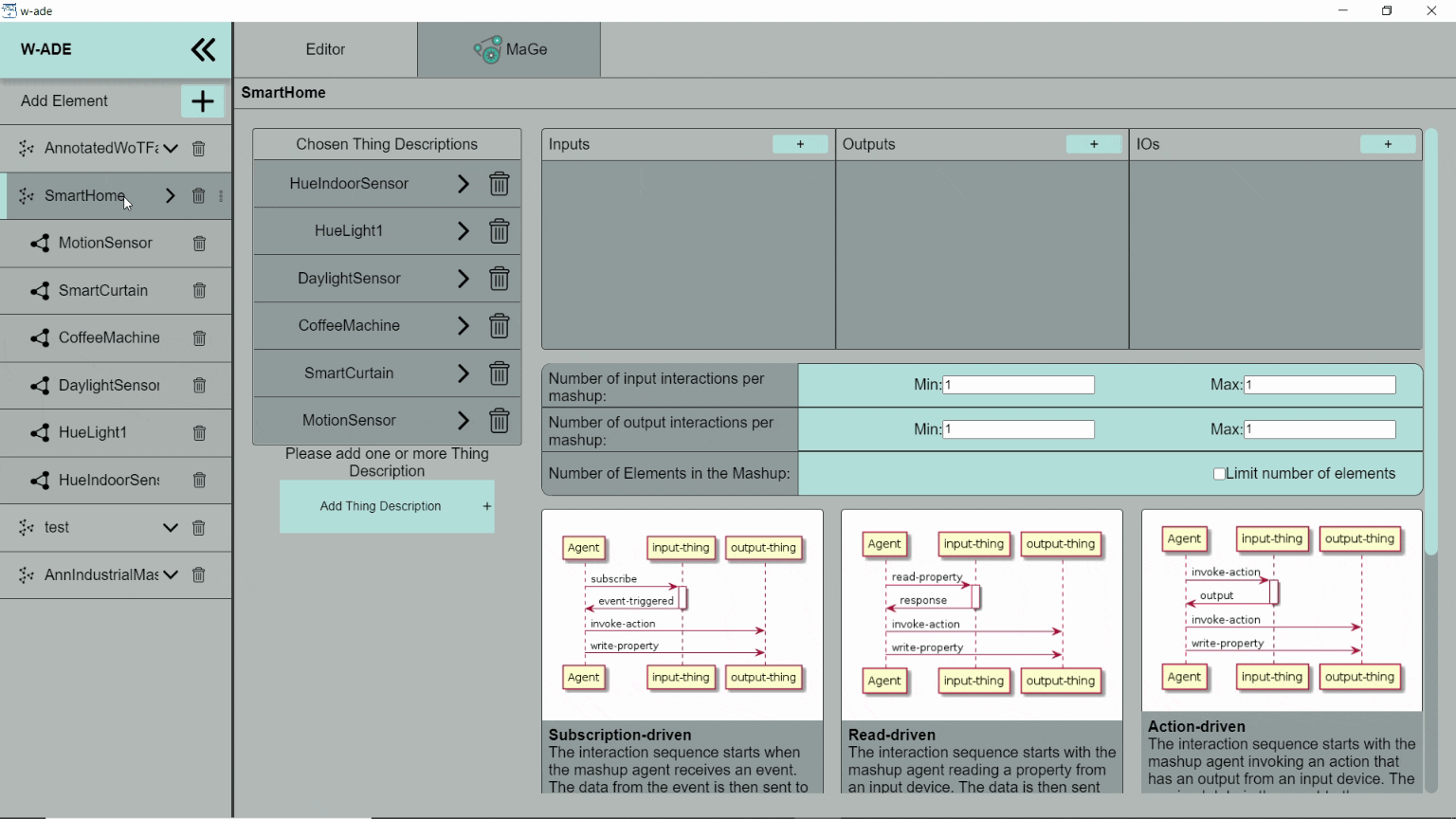Coming from : w3c/wot#588
I'm very impressed today's Dev meetup Demo. Many things from different companies work together based on WoT specification.
On the other hand, from WoT beginners's point of view, I'm afraid, it might to tough to understand what is done, what is achieved....
What points do we promote at break out session on Oct.24th.
There are some layers of our achieved points, as my impression.
- from one domain standard to cross domain standards
e.g.
Panasonic client service application can control Panasonic home appliances
products.
Panasonic exports TDs according to WoT.
Then Siemens client service application who never knows home appliance
standards can control Panasonic home appliance products.
TD is the declaration of device which includes
- Who I am
- What category I belong to
- What APIs I provide
- How to use APIs
- Supported communication protocols
- Supported security method
- mixture of local network and global internet
This is achieved by introducing WoT proxy.
- semantic match
A client would like to turn off all devices by simple one trigger.
TD provides semantics such as who provide "turn off" functionalities.
- security negotiation
What kind of security technology the device provides is described in
TD.
This is basic information which makes device and clients negotiate
under well-defined security methodologies.
- WoT simulator
Designing and implementing WoT total system, engineers do NOT have to
prepare complete devices as hardware.
Some of them can be prepared as software, that is, WoT simulator.
After system development, it is easy to substitute WoT simulator to
real hardware device just by changing url address from WoT simulator
to WoT of real device.
And Oracle also provides WoT device's event stream simulater.
These software can also work as WoT compliant checker.
- Node WoT
Node WoT parses scripting API.
- NodeRed
The open tool named Node Red provides graphical programming of WoT client
software.
Then the converter from TD to NodeRed's node is provided.
Then, how about create demo group such as "Siemens and Panasonic", "Oracle
and Intel" according to this scenario.
And show our demo according to scenario to audience.





